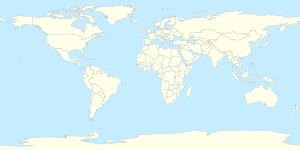Country facts for kids

A country is like a special area of land with its own rules and people. It has clear borders and a government that makes decisions for everyone living there. This government also talks to other countries.
It's not always easy to say exactly how many countries there are in the world. The most common answer is 193, because that's how many countries are members of the United Nations.
Some places are called "observer states" at the United Nations. These are Vatican City and the State of Palestine. If you add them, the number of countries becomes 195.
Sometimes, places like Taiwan are also seen as countries. But there are disagreements about who truly owns them. For example, China believes Taiwan is part of its own country.
Some countries are made up of smaller "constituent countries." For example, the United Kingdom has four constituent countries: England, Scotland, Wales, and Northern Ireland. The Kingdom of the Netherlands and the Kingdom of Denmark also have these. Adding these can make the total number of "countries" even higher.
There are also places that have declared themselves independent but are not recognized by many other countries. These are called "disputed areas." Examples include Kosovo, South Ossetia, Transnistria, and Abkhazia. Whether these are counted as countries often depends on who you ask!
Because of all these different ways to count, the number of countries can change. It depends on how you define a country and which places you decide to include.
What is a Constituent Country?
A constituent country is a term used when several "countries" are part of a larger group or entity. For example, the Organisation for Economic Co-operation and Development (OECD) has used this term. The Council of Europe also uses it when talking about the European Union. It helps explain how different parts make up a bigger whole.
What is a Disputed Territory?
A disputed territory is a piece of land that two or more countries both claim as their own. Usually, one country controls the area, but the other country does not agree with that control. This can happen with land or even parts of the sea.
For example, Antarctica is a large landmass that no single country fully controls. Another example is Northern Cyprus and Cyprus. Both claim the same area, leading to a disagreement over who is in charge.
See also
In Spanish: País para niños
 | William Lucy |
 | Charles Hayes |
 | Cleveland Robinson |

